#please note how this is a SONNET. unreal…
Explore tagged Tumblr posts
Text

2K notes
·
View notes
Photo
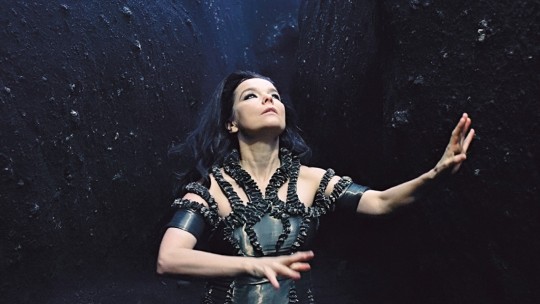
Ranking the albums of Björk
Today I will be ranking the albums of the fantabulous and wonderful Björk. She has been an influence on me ever since I first heard “It’s Oh So Quiet” back in 1995 and since I have been following her career extensively. Although her later albums are a bit less accessible commercially to her early work, I don���t believe she has released a bad album. I will be charting her work starting with her first solo album in 1993, and not including her work with Icelandic Punk-Pop group the Sugarcubes. I also will not be including her soundtrack to the film ‘Drawing Restraint 9’, as this was mostly instrumental.

10. Volta (2007)
Volta seemed like Björk’s attempt to gain radio play again after having an experimental phase working with her ex-partner/filmmaker Matthew Barney. The album’s first two singles, “Earth Intruders” and “Innocence” were both produced by hip-hop giants Timbaland and his protégé Danja and featured a very electronic dance aesthetic. Though the album did quite well critically and is packaged beautifully, it does not feel cohesive or really as forward thinking as most of her work. Also, the Mark Stent remixes of each single, released separately, seem to outshine the album versions.
Listen to: Earth Intruders, Declare Independence, Wanderlust, Innocence.
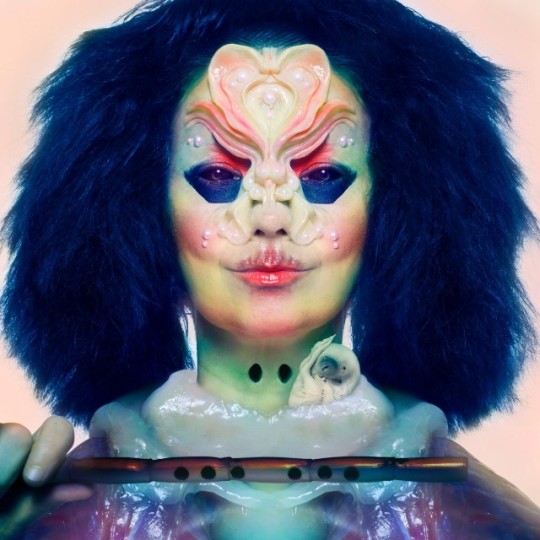
9. Utopia (2019)
Most Björk fans find this album to be a triumph but I currently still cannot enter the world of Utopia or find it interesting enough to warrant repeat listens. The album is her lengthiest (at over 70 minutes) and is a mixture of folk, electronic and studies more ethereal themes. Björk works with the brilliant producer Arca to help shape the landscape of each song, and at times it really works, but overall it feels overly long, and almost like a Björk parody.
Listen to: Arisen My Senses, The Gate, Sue Me, Saint
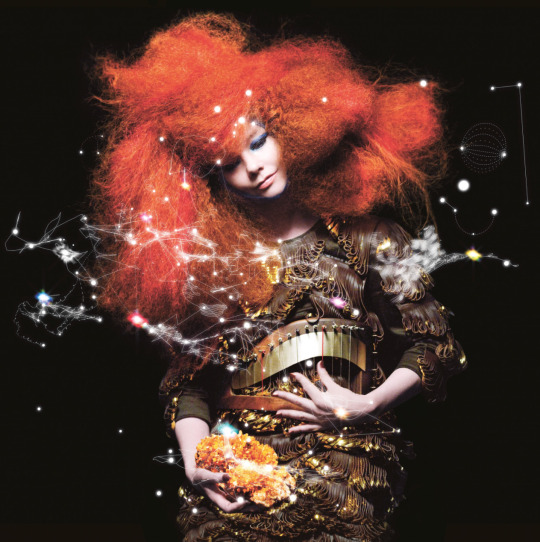
8. Biophilia (2011)
A concept album that deals with nature meeting technology. Each track is tuned to a different note on a tuning fork and sets of these tuning forks were even released as exclusive boxsets. Overall the album is well conceived and produced but does suffer from being a bit ‘samey same’, as some of the tracks blend together. I did see a concert on the three year tour for the album and I was incredibly impressed with how she was able to translate the sound live.
Listen to: Mutual Core, Crystalline, Thunderbolt, Moon

7. Selmasongs (2000)
This is the first soundtrack album conceived by Björk and contains the songs written for the film Dancer in the Dark. The film is a wonderful and sad story of an immigrant woman named Selma who is going blind, and who makes her days brighter by conceiving there is a musical happening when things seem to go wrong. The songs are quite good but not her strongest, though this may have been due to her tight time constraints and working with an orchestra.
Listen to: Cvalda, Scatterheart, 107 Steps, Overture
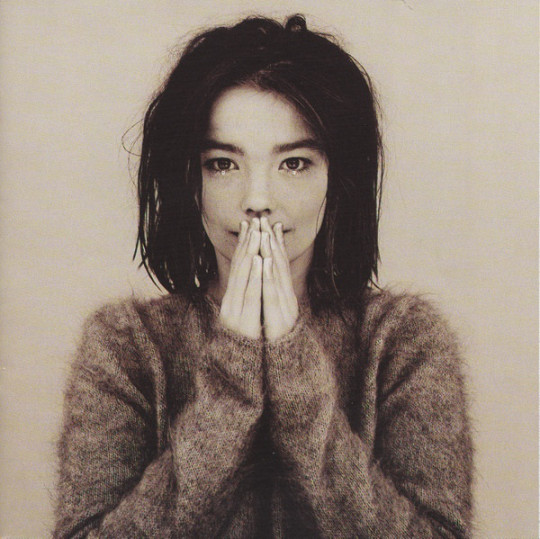
6. Debut (1993)
Björk’s first album post-Sugarcubes is a trip-hop masterpiece that not only launched her career but also brought London’s underground dance scene to the mainstream. This was thanks to producer Nellee Hooper who had previously won Grammy Awards working with Soul II Soul and Sinead O’Connor. Five singles were released from this album (four initially, and one on the re-issue) and all charted on the UK singles chart, with the album selling around 4.5 million copies Worldwide.
Listen to: There’s More to Life Than This, Venus as a Boy, Violently Happy, Human Behaviour, One Day
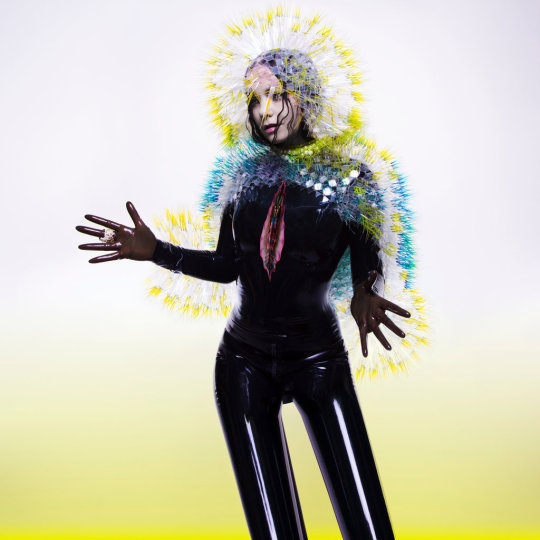
5. Vulnicura (2015)
Vulnicura in my opinion is probably the first album in Björk’s career where there were no radio-friendly tracks but rather a continuation of her wanting to push the experimentation of song constructs. Rather than release singles to promote the album Björk decided to create innovative music videos which tested new technology, such as 360-degree cameras. This later lead to a virtual reality exhibit entitled “Björk Digital” which went on an 18-month tour around the World. I still kick myself for missing it. Each song is produced by either her now long-time collaborator Arca (whom she met on her Biophilia Tour) or new collaborator The Haxon Cloak.
Listen to: Lionsong, Stonemilker, Family, Notget, Mouth Mantra
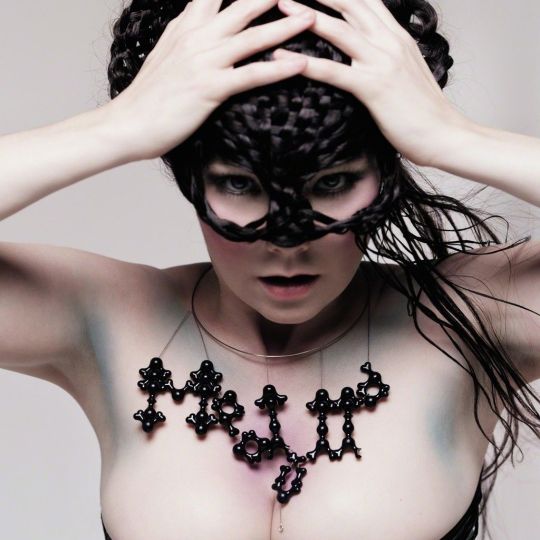
4. Medúlla (2004)
Being asked to write the theme for the 2004 Summer Olympics is an honour, but also to have its musical themes continue onto a full-length album is superb. Björk started writing Medúlla as “The Lake Album” in which she would strip all instrumentals from tracks and simply focus on voices. As she called it, a “very introverted” album and the title changed to the latin word for bone marrow, as it is the base building block of a person. Though some of the tracks do contain some synthesizers, 95% of the album’s beats and rhythms are made by mixing the voices of throat singers, beatboxers and choirs.
Listen to: Oceania, Where is the Line, Pleasure is All Mine, Sonnets/Unrealities XI, Triumph of a Heart
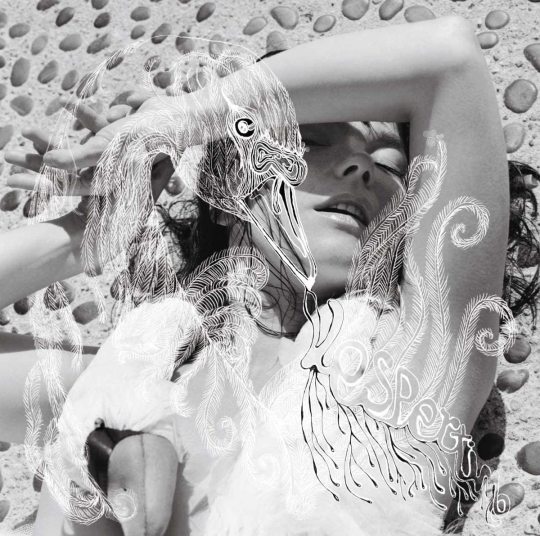
3. Vespertine (2001)
It took me a few years to get into this record as Vespertine was so far and beyond what anything Björk had created. I was used to the incredible experimental electronic sound on first three albums that when I listened to #4, which contains mostly micro-beats and soft vocals, and not to mention the infamous swan dress on the cover, it was a bit of a shock. Björk felt the energy of her 1997 release Homogenic was very masculine and aggressive and she wanted her new album to sound more feminine and explored her mindset during the filming of Dancer in the Dark as well as her relationship with Matthew Barney. I always felt Vespertine was a winter album as it feels quite Nordic in its soundscape. I’m glad I kept listening as it turned out to be one of my favourites.
Listen to: Harm of Will, Pagan Poetry, Hidden Place, It’s Not Up to You, An Echo A Stain
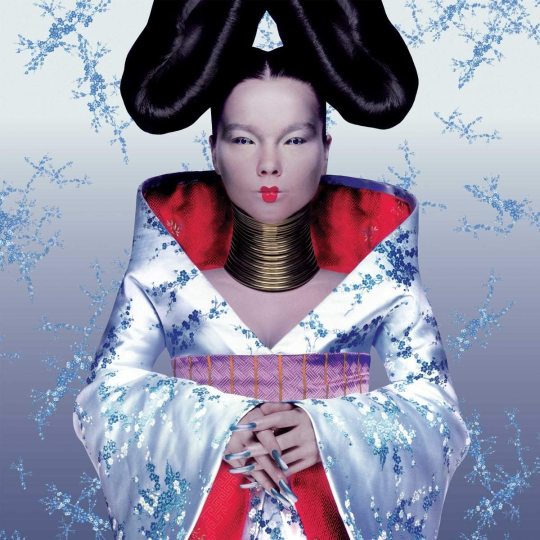
2. Homogenic (1997)
Wowser, already at number 2. I remember the first time I heard this record with my friends; they would think it too strange though I would think it magical. It became one of my most listened to records of my teens. Its glamorous and punk and the artwork is extreme. Björk’s album look was envisioned and created by genius designer Alexander McQueen, who would be her frequent collaborator until his death in 2010. Homogenic was produced by Howie B and Mark Bell, and Björk wrote the album as a tribute to Iceland, wanting the songs to create the landscape of her homeland. The album released five singles, three which would enter the UK top 40.
Listen to: The whole thing.
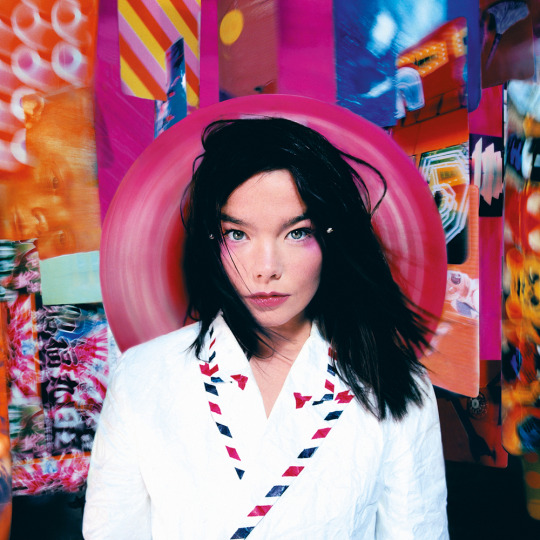
1. Post (1995)
Post is probably one of my top 10 favourite albums of all time. I could listen to it over and over again on repeat without being bored. The year 1995 was big for me in terms of musical discovery. I was 13 around the time I started buying my own cassette tapes and CDs. My Aunt came home from a business trip in London and brought back this CD. “It’s Oh So Quiet” was a massive hit in the UK and she wanted my brother, my cousins and I to hear this unusual and brilliant artist. The next year the Mission: Impossible film would come out and the song “Headphones” was featured, to which Björk sings to a friend about the feelings she has listening to his mixtape. I in tow would listen to that song every night on my Walkman before I fell asleep as it was a perfect way to end each day. Post was incredibly influential to me and to this day is a staple in my life. I can’t thank Björk enough for creating this iconic piece of music history.
Listen to: The whole thing.
Please, if you are so inclined to let me know in the comments how you’d rank Björk’s albums.
#bjork#ranking#mr. marc#mr. marc reviews#reviews#music reviews#post#homogenic#vespertine#utopia#2020#music#electronic#iceland#icelandic#debut#live music#musique#vulnicura#nattura#it's oh so quiet#hyperballad#possibly maybe#hunter#volta#biophilia
29 notes
·
View notes
Text
Resources
It started with a tweet. I asked:
1 - Poets with MFAs & poetry professors: are there specific books (of poetry, on poetry) that you would recommend for writers who may not have access to formal education in poetry?
2- Poets without MFAs — please feel free to add books that have felt pivotal and educational for you in your process. I mean this primarily as a resource and did not mean to suggest that others may not have valuable texts to offer!
Here are some of the responses (I typed up as many as I could, bolded any that I noticed repeated):
Dorianne Laux and Kim Addonizio’s The Poet’s Companion
Kaveh Akbar’s Divedapper interviews
Mary Oliver’s A Poetry Handbook
Writing Dangerous Poetry by Michael C Smith
Creating Poetry by Drury
The Practice of Poetry by Behn
Feeling as a Foreign Language by Alice Fulton
A Little Book on Form by Robert Hass
Poetry and the Fate of the Senses by Stewart
Of Color: Poets’ Way of Making Anthology (forthcoming)
De-canon
The Volta
The Alabastar Jar (interviews with Li Young-Lee)
Ordinary Genius by Kim Addonzio
On Poetry by Glyn Maxwell
Fictive Certainties by Robert Duncan
The Flexible Lyric by Voigt
Wislawa Symborska’s “Nonrequired Reading”
The Art of series (especially the Art of Description by Mark Doty, especially The Art of Syntax by Ellen Bryant Voigt)
My Poets by Maureen N. McLane
The Princeton Encyclopedia of Poetry and Poetics
The Crafty Poet by Diane Lockward
Wingbeats and Wingbeats II by Scott Wiggerman
Madness, Rack, and Honey by Mary Ruefle
Picking one poet per year, reading their ouvre and letters (an extremely helpful and nourishing assignment from a genius prof)
Sister Outsider by Audre Lorde
Rigorously study the line, study grammar, and study some kind of oracle system (Tarot, I Ching, astrology, etc) and read as widely in poetry as you can
Poetic Rhythm by Derek Attridge
A Poet’s Guide by Mary Kinzie
The Art of the Poetic Line by James Logenbach
John Frederick Nims’ Western Wind
Poetry: A Writer’s Guide by Amorak Huey and Todd Kaneko
The Making of a Poem (Norton)
Art of Recklessness
Modern Life by Matthea Harvey
Dancing in Odessa by Ilya Kaminsky
Please by Jericho Brown
Slow Lightning by Eduardo Corral
Meadowlands by Louise Gluck
Kinky by Denise Duhamel
Names Above Houses by Oliver de la Paz
How To Read A Poem and Fall in Love With Poetry by Edward Hirsch
Carol Rumen’s long-running weekly Guardian column
Poetry 101 by Susan Dalzell
Theory of Prose by V Shklovsky
The Art of Attention by D Revell
Structure and Surprise by M. Theune
Why Poetry by Matthew Zapruder
Poems - Poets - Poetry An Introduction and Anthology by Helen Vendler
Triggering Town by Richard Hugo
The Art of Daring: Risk, Restlessness, Imagination by Carl Phillips
Upstream by Mary Oliver
The Life of Images by Cahrles Simic
Being Human (anthology)
How To be a Poet
Nine Gates by Jane Hirshfield
Gregory Orr book on lyric poetry
WIld Hundreds by Nate Marshall
What the Living Do by Marie Howe
Helium by Rudy Francisco
Wind in a Box (or anything else) by Terrance Hayes
Blud by Rachel McKibbens
Incendiary Art by Patricia Smith
Poetry by Gwendolyn Brooks, Elizabeth Bishop, and William Carlos Williams, Ted Kooser, Pablo Neruda, ee cummings, Charles Simic, Patricia Smith, Dorianne Laux, EB Voigt, Terrance Hayes, John Donne, TS Eliot, Ezra Pound
Read widely. Read more than poetry. Embrace your outsider knowledge.
Real Sofistikashun: Essays on Poetry and Craft by Toby Hoagland
The Sounds of Poetry: A Brief Guide by Robert Pinsky
A Field Guide to Poetry
Ten Windows by Jane Hirshfield
The Ode Less Travelled by Stephen Fry
The Book of Luminous Things (anthology) ed. by Milosz
Dictee by Theresa Hak Kyung Cha
Poets.org and Poetry Foundation websites
Beautiful and Pointless by David Orr
Find or start a writing group!
Best Words, Best Order by Stephen Dobyns
American Sonnets by Terrance Hayes
The Lichtenberg Figures by Ben Lerner
Poetry Notebook by Clive James
Don Paterson’s 22-page intro to “101 sonnets”
Essays by Barbara Guest
Poetry is Not a Project by Dorothea Lasky
After Lorca by Jack Spicer
The New American Poetry 1945-1960
Helen Vendler’s criticism (The Ocean, The Bird and the Scholar)
Oxford Book of Twentieth Century English Verse ed. By Philip Larkin
The Discovery of Poetry by Frances Mayes
French symbolists
The Outlaw Bible of American Poetry
The Poets Laureate Anthology
Poet’s House, 92Y Poetry
Singing School by Robert Pinsky
The Poetry Home Repair Manual: Practical Advice for Beginning Poets by Ted Kooser
Glitter in the Blood by Mindy Nettifee
Poetry: A Survivor’s Guide by Mark Yakich
All the Fun’s In How You Say A Thing by Timothy Steele
The Collected Poems(1856-1987) by John Ashberry
Viper Rum by Mary Karr
The Making of a Poem by Mark Strand and Eavan Boland
Rules of the Dance by Mary Oliver
Letters to a Young Poet by Rainer Maria Rilke
Jorie Graham lecture On Description (youtube)
Poetry in Theory
How to be a Poet by Jo Bell and Jane Commane (& special guests)
dVerse Poets
Reading Poetry: An Introduction by Furniss and Bath
Poetry: The Basics by Jeffrey Wainwright
The Poetry Handbook by John Lennard
Broken English: Poetry and Partiality by Heather McHugh
The Poem’s Heartbeat by Alfred Corn
Orr’s Primer for Poets and Reads of Poetry
Penguin’s 20th Century Anthology
The United States of Poetry
Staying Alive: real poems for Unreal Times ed. By Neil Astley
Hollander’s Rhyme’s Reason
52 Ways to Read A Poem by Ruth Padel
A Western Wind: An Introduction to Poetry by David Mason and John Frederick Nims
Projective Verse by Charles Olson
Retrospect/A Few Don’t by an Imagiste - Ezra Pound
Against Interpretation - Susan Sontag
Commonplace Podcast
Headwaters by EB Voigt
Olio by Tyehimba Jess
The Orchard by Brigit Pegeen Kelly
The Living and the Dead by Sharon Olds
Sonnets by Bernadette Mayer
The Sin Eater by Deborah Randall
The Art of Poetry Writing by William Packard
The Poet’s Dictionary by William Packard
Freedom Hill by LS Asekoff
Theory of the Lyric by Jonathan Culler
Close Listening ed. By Charles Bernstein
Poetics of Relation by Edouard Glissant
The Poet’s Manual and Rhyming Dictionary by Frances Stillman
The Hatred of Poetry by Ben Lerner
The Way to Write Poetry by Michael Baldwin
Fussell’s Poetic Meter and Poetic Form
Lofty Dogmas: Poets of Poetics
Close Calls with Nonsense: Reading New Poetics by Stephanie Burt
Poetry in the Making by Ted Hughes
A poet needs: grounding in verse and rhyme from nursery lines, a grounding in adult poetic diction by the classic poets (of antiquity, late antiquity, then the mediaeval, early modern and modern periods), and their own poetic vision
Pig Notes and Dumb Music by William Heyen
Satan Says by Sharon Olds
My Emily Dickinson by Susan Howe
#poetry#on poetry#poetry school#self education#resources#learning#about poetry#mfa programs#reading#for your own edification#creative writing#studying
103 notes
·
View notes
Text
My Baby Does Me: Chapter 33
POV: John Deacon x reader
Notes: Still aiming for once a week updates, could be more, will never be less; thanks for sticking around; I love this story and everyone who reads it dearly and with all my heart.
Warnings: so much smut so much smut; Platonic Forms?
Abstract: Young is the night it feels so right now that you’re mine...
-------------------------------------------
Everything was black and white.
He was surrounded.
It was the apotheosis of fainting. Some unification he couldn’t yet describe, yet intuitively knew like the beat of every song he had ever written; his music had been screwed out of his heart as a bloody pulp and smashed on each page, all pomegranate seeds and peach pits; his art, and hers were works of color and intense emoting. And that was part of it, art was intricately part of this feeling, of this experience; because being with her was being with a walking piece of art.
It was, because he knew things like this, the Stendhal syndrome.
Roger had taken off his sepia-toned glasses. They were round and almost delicate in a spindly way that did much to betray the inner workings of the man who wore them. Flashy on the outside cotton-candy frail on the inside. Much like the candy confection, his moods were transient yet shockingly robust; they’d pierce you in the heart and evaporate after doing so, like some joke only he knew the punchline to, which is exactly how he liked it. This, however, did not mean his feelings were impermanent or purely esoteric; Roger preferred a full-bodied expression of his feelings at all times. For him, feelings were something you could touch and should touch. And he sensed the woman across from him, more or less, had the exact same emotional profile. Her profile was fine, fine, fine.
Deacy always loved those particular sunglasses; he had told Roger on many occasions they were his “film school” glasses, because they made everything appear like an old movie from the 1930s or that odd time in the 1970s when everything was a nostalgic throwback in color tones. It always came back to color. Of all of Roger’s pairs, those sepia ones were Deacy’s singular mission and desire to steal the most frequently. Roger was very protective of his collection, and no matter how many pairs of sepia-colored sunglasses Roger bought for Deacy, the bassist always only wanted Rog’s personal pair. This was, as everything else had been for them, some unspoken, spoken game. Though at this time, the men had no idea they were both slowly engaging in the same game, near the same time, with women with whom they were both falling in love. These decisions are barely noticed or noted, and yet they happen everyday. Rock stars are no exception to this rule.
With the glasses now removed, Roger could see Lydia’s paintings in full force. All harsh lines, cutting and uneven, and deeply felt, as if necessary. It was as if she had sliced her arm open and painted with her own black blood, as if she had smeared her very life on the canvas. Her fingerprints covered every line, even though she never used such techniques. Despite this critical distance, every line and impression spoke of some Truth, some mixed emotion, some passionate distraction, a powerful act of consolation.
They gave him pause. Piece after piece. Parts of her, all of her. He froze, for a moment. It had only been a moment. But it always is just merely a moment. We romanticize it in our own minds, making some trivial seconds into an expanse of time that shook us for eons. When in reality the moments when love happens are brief, singular, and yet universal. Another paradox; Deacy would be pleased. To each person who is having them, it could be about anything, and yet the feeling always equals the same emotion. It could be over coffee, the passing of a note, a whisper, a laugh, a glance; bringing her something that was lost, fixing something that was broken; the mundane, the easy, the forgettable, yet entirely and always recalled in flowery prose and undying poems. Shakespeare wrote sonnets for a reason, folks.
So, to Roger, a closeted romantic, and he certainly thought of himself as a new-aged Shakespeare, this moment in space-time did something to his heart he couldn’t entirely understand at this time, which was saying something since he had the emotional intelligence and sophistication of an FBI agent performing opera. All cosmic depth and precision of intention. What did he remember the most? The art--her art? The use of color and light to create depth where there was none, or should be none? Or was it her? Her torn red dress, his rainbow blazer, her golden hair. When exactly did they become one, those ideas? Inextricably tied together, black and white and her, all color and light? Well, it was our friend Stendhal. Cocky asshat, Roger thought. Roger had never met Stendhal, separated as they were by time and space, yet that jerk was right. Roger hated it when other people were right; on all occasions, he preferred to be the right one. Though, Lydia was right. She was right. She had probably always been right. He just hadn’t met her yet. But maybe he had always known anyway.
Distracted as he was by the art and the beautiful woman in front of him, he still managed to close the door by leaning on it, suggestively. Though, everything with Roger Taylor was suggestive. The moment in question happened during this small gesture. The closing of a door. And we’d all like to think he was leaning up against it as a seduction, a keen way to put the moves on the unacknowledged, unrealized love of his life. We’d all like to think Roger was that good, and that invincible in the face of ineffable beauty.
He wasn’t.
Lydia hadn’t noticed, she had chosen that moment to close her eyes, to swipe her hair back, to turn her neck, and gaze off, performing her own quiet seduction while he should have been performing his. She had ever been his match, you see.
In reality, Roger had leaned up against the door, closing it on accident, because he had fainted. It had lasted for a handful of simple seconds, nothing long, nothing melodramatic, or even noticeable to anyone else but himself. He had fainted in the face of beauty. There was something shockingly Platonic about it, which was ironic considering Plato hated the arts and artists with a passion that held hands with an outright and violent jealousy. The way Roger saw it, if he had been Plato and his mentor (Socrates) had told him he could only study philosophy or poetry, not both, and was forced to pick philosophy, well, he’d hate the arts too. Despite Plato’s blatant envy, every Platonic Form working in this room swirled around Roger, intermingled, and he experienced a keen apotheosis with the Godhead; his life would never be the same again.
He fainted.
His too blue eyes rolled back, and he felt his vision blur into blackness, all color erased, all light evaporated: he held hands with some divine Form of the Arts and Love, and everything else fell away.
He fainted. Fuck Stendhal, he thought upon waking.
He fainted. Mere seconds, but he never escaped. His body lightly became suspended in action, leaning back without his power or will to control it. He had gone some other place. That elusive place of creation no artist can name. He had gone there, on a seventeen second journey. Part of him would always be there. Part of it would always be her.
He fainted. Eyes gone, mind some place else. His body folded into the door, casually, elegantly. He leaned. His back hit the door, and he swayed with it. They danced together until the door closed. His body followed the force of it, forward, then back.
He fainted. Maybe it was her, her beauty alone. Or her artworks, and their soul-swaddling beauty. Maybe it was both. Maybe it didn’t matter. Plato would know which it was, Roger thought. And Shakespeare would be capable with his numerous talents to put it into words, and Stendhal would be able to explain it him. He’d understand.
He fainted. Wrapped in the arms of Stendhal, Roger sunk bog-deep. It was an immovable free-fall. Another paradox.
But then, Roger woke up. He came too. And he saw her.
He saw Lydia.
He thought, besides a good fuck you to Stendhal, he could look at her forever, admire her, like work of art; everyday he’d notice something he hadn’t before that would only increase her beauty, which could never be diminished. Something in her was eternal. Roger waxed Platonic. Though nothing about his feelings for Lydia were remotely platonic.
He had fainted. Slipped away for a mere seventeen seconds. Come back from some journey. And he saw her.
That’s probably when he knew. When the first hint creeped up to say hi. He hadn’t listened, though. He pushed it back down, trying to deny what was there. And that denial, that split-second choice to ignore his heart and the existential beauty trip he had been on, that’s when Stendhal reared his ugly head again. He hadn’t noticed the second occurrence, because he had been distracted by her kiss.
It was easy to forgive such an indiscretion.
Kisses can be magic.
But so can Stendhal: that’s when the hallucinations started.
All the colors started vanishing, but he hadn’t noticed.
So, he slipped further down the rabbit hole; this he would regret later, but not now. Not with her tongue down his throat.
He had fainted, up against the door, then he came back. And he saw Lydia. She peered at him. Head turned to profile, eyes down, then flicked up to his.
Well, he couldn’t resist.
Could you?
They moved in syncopation. Him first, then she mirrored him. She didn’t notice his sluggish start. And he shook it off as ecstasy--he wasn’t entirely wrong. He didn’t notice the lack of color, because the entire room was black and white already. It is hard to blame him.
As their lips touched, and their tongues touched, he slid the blazer from her shoulders, and wrapped his arms around her. Her skin was silk. He never wanted to let go of her. Never wanted to let go of her. He never wanted to. He felt that. He meant it.
He pulled away from her kiss, and she clawed him back to her, cradling his face and blond hair simultaneously. He smiled, not wanting to pull away, but he couldn’t stop thinking about her neck; it was hard to blame him.
Roger kissed down her chin, and fondled her waistline, down to her plentiful, fantastically feminine hips. And proceeded to lick her neck in tantalizing swirls that sent shocks through her entire body. He traced down her cleavage with his tongue, interrupted by her bra. He flicked his sapphire eyes to her’s; asking permission with them. She laughed softly, bit her lip, and winked at him.
That was all he needed to hear. He knew. Well, he knew a lot. But these moments happen, and we pass them by in the moment, only to revisit them later and go: was that when? Was that moment when I first knew? Roger would be trapped in this cycle for a long time. Stendhal wouldn’t help this at all either. Maybe it had been the giggle? The wink? When she threw her head back and arched her back? It was hard to tell. Love looked different to different eyes. He intertwined a hand in hers, which she readily held back.
He unhooked her bra in one skilled motion, with one knowing hand. He slipped it off one arm, and they broke touch with their other hands to remove it completely. The break in touch lasted for a second. No more.
She sifted a hand to his black pants, and began slowly undoing the button, the zipper. Each movement an important step in seduction, each second a path to exquisite foreplay.
Roger began kissing Lydia again. He pinched one of her nipples hard, until she moaned in his mouth. He hastily traveled down her decolletage once more, carefully licking her other nipple. Then, he started biting. Softly at first, then hard. He moved to the tender skin around her nipple, and bit crescent moons around her breast in one elegant line. Each bite was harder than the last, and each level of intensity made her writhe and shine, and made him grow tumescent, surrounded by black and white masterpieces.
His black pants were off, and she moved to his white shirt, though concentration was growing more and more difficult with each passing bite, with each passing second. He moved a hand slowly down, and up underneath what remained of her dress. She was wet already when he felt her tenderly. He pulled back from her breast, and gazed into her eyes--only dark to him, for all color was gone, but he hadn’t noticed that sensation any more than he could pinpoint the exact second he knew he loved her.
He wanted to make love to her, to look her in the eyes as he gave her pleasure; he wanted a connection, he wanted intimacy, he wanted vulnerability. He was a stranger in a strange land. Where was that prick Plato when you needed him, he thought, fleetingly.
His fingers worked around her clit, and she pulled herself close to his white tee-shirt, clinging to him. She sighed in his ear, and the sound of her breath caused him such shocking ecstasy he couldn’t put it into words, let alone music. His other hand found her neck, her face, and he pulled her back, so he could look at her. This was surprisingly tender, not rough, yet not negotiable. He could easily please her, and only her, forever, and count himself a happy man.
Lydia put her hand on his, and they looked at each other, as he slowly massaged her. She deftly slipped a hand around his cock, and began tracing his length in rhythm with his movements.
Roger was startled at how close he could be with someone without being inside them. This was entirely new to him. Everything about this feeling, about this closeness, was entirely new. Was this love? Was this Stendhal?
It was both.
They still had half their clothes on, and yet he had never felt closer to anyone.
They were up against the door now, holding each other’s heads, sliding their hands skillfully to pleasure the other. And in every gesture, love was there. In every movement, care occupied a space.
Time escaped them, and it was hard to blame them.
--------------------------------
Tag List: @phantom-fangirl-stuff @triggeredpossum @obsessedwithrogertaylor @groupiie-love @partydulce @richiethotzierz @sophierobisonartfoundationblr @psychostarkid @teathymewithben @smittyjaws @just-ladyme @botinstqueen @mydogisthebest @little-welsh-wonder @maxjesty @deakysdiscos @yourealegendroger @marvellouspengwing @molethemollie @deakysgirl @arrowswithwifi @tardisgrump @mikey-sway
#john deacon x reader#joe mazzello#roger taylor#ben hardy#bohemian rhapsody#queen x reader#roger taylor x reader
29 notes
·
View notes